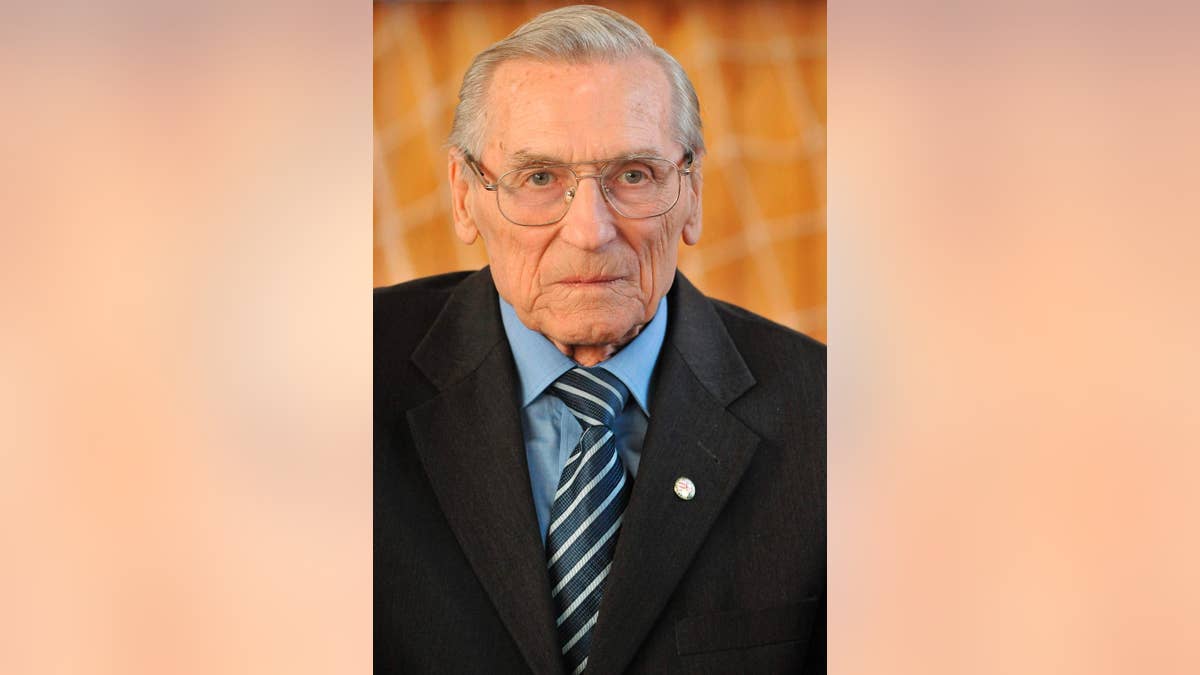
FILE - In this Nov. 12, 2009 file photo Gyula Grosics, the goal-keeper of the legendary Hungarian national soccer team (The Golden Team), led by Ferenc Puskas, beating the English national team 6-3 in Wembley in 1954, and member of the winner team of 1952 Summer Olympic Games in Helsinki, is pictured at an event in Budapest, Hungary. Grosics, who was nicknamed the Black Panther, died in Budapest on Friday, June 13, 2014, at the age of 88. (AP Photo/MTI, Tibor Illyes, File) (The Associated Press)
BUDAPEST, Hungary – Gyula Grosics, the goalkeeper of Hungary's Golden Team of the 1950s, has died. He was 88.
Grosics' death on Friday was announced by his family and the Hungarian Football Federation.
He had suffered three heart attacks and other ailments in recent years and was hospitalized this week after a routine checkup.
He played 86 times for Hungary from 1947 to 1962, including in the famous 6-3 victory over England at Wembley Stadium in 1953 — the host team's first home loss to a non-British opponent. A few months later, Hungary beat England 7-1 in Budapest.
Also known as the "Magical Magyars," they hadn't lost in four years when they were upset in the 1954 World Cup final by West Germany.
Grosics also played in the 1958 and 1962 World Cups and won a gold medal at the 1952 Olympic Games in Helsinki.
He was called the "Black Panther" because of his black jersey, and modernized his position by often coming far out of the goal to effectively act as another defender.
Grosics was born on Feb. 4, 1926, in Dorog, a town north of Budapest.
Grosics, whose mother wanted him to become a priest, made his professional debut at 17 for his hometown club in 1943.
Still a teenager, he was recruited by the Hungarian armed forces near the end of World War II and was briefly taken prisoner by American troops. In 1949 he made a failed attempt to defect from Hungary, by then under communist control.
Grosics played for Budapest Honved from 1950-54) but was forced out of the sport for two years, as he was suspected by the communist authorities of treason and spying.
Grosics finished his playing career in Tatabanya, and coached several Hungarian teams and in Kuwait.
After Hungary returned to democracy in 1990, Grosics ran unsuccessfully for parliament as a candidate for the conservative Hungarian Democratic Forum.
With Grosics' death, defender Jeno Buzanszky becomes the last surviving member of the Golden Team, which also featured Ferenc Puskas, Sandor Kocsis and Nandor Hidegkuti.




















